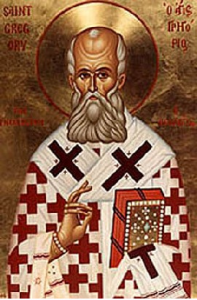The effects of what Jesus did in Holy Week are powerful. It was a rather strange experience for me to watch a recent TV documentary, in which the subject matter was all concerned with the future of the Christian Churches in Britain; Ann Widdecombe was the programme’s presenter. There were interviews with young people, and it was astounding to hear some 20 to 30 year old ‘girls’, in particular, saying their number one priority was themselves – and what they wanted to do in life. To me, this came across as something akin to pure selfishness. Anything that approached or sounded like the Gospel ‘maxim’, “He who loses his life will save it” was significantly absent. Since the programme, I met with a friend who is an alcoholic; he came to chat, and at the time he was quite the worse for drink. He was not looking for money – or food. What he wanted was to sit and converse, and, especially, to share a worry he was carrying, in that his friends – all of whom are also alcoholics – are talking about taking their own lives. They are, in his words, ‘fed up’ with life as they find it and so they ask themselves the question: “Why live?” My young friend thought the others were being stupid and that you should never think about taking your own life. In his drunken state, he seemed quite sensible, but, obviously, the thought never occurred to him, that to self-indulge in alcohol – as with any of today’s addictions – is also putting ‘self’ first, regardless of whatever consequences.
I tried to show him that the only way to get out of his alcoholic ‘trap’ was to live, not for self, but for the good and benefit of others, to put self-centredness out, and accept help to overcome his addiction and his homelessness. “Oh yes!” he said; he would like to do that; he accepted that he needed help and would welcome it. He also said that, if somebody was in need, he would always try to help them with money to buy food, or a drink. All this made me think how desperately important it is, to find help and support – practical support – for people who cannot cope. This man needs someone he trusts, someone he can like and respect, to help him keep any lodgings he may acquire in good condition. He also needs help to budget his money, to guide him in his personal hygiene, how to cook, wash his clothes, and in many other practical things. His present circumstances leave me wondering, at the wonderful contradictions we human beings carry within us!
 |
Ecce Homo – Pilate Presents the Scourged Jesus to the Crowd – (Antonio Ciseri 1821 – 91)
Jesus was utterly unselfish in the giving of himself, out of love for all humanity, and this he clearly demonstrated by means of his unbearable suffering and ignominious death on the cross. For me, one of the greatest signs of God’s presence, in Jesus, is in the silence Jesus maintained before Pontius Pilate, and throughout the Passion story. Only a very strong person remains silent, and is not provoked to react in the face of such mountainous pressure. Jesus could have called on the legions of angels in heaven, to help him at any time; however, he did not reply to Pilate, and from the cross, refused to come down, despite the taunts of those who jeered at him.
The Fathers of the Church had their own quite original way of meditating on the Passion and Death of Jesus. They realised the truth, that what Jesus did, was unique, and that what Jesus endured provides the redeeming cause of our salvation. At the same time, in a very small way, the passion happens in our lives. We mere mortals do not save the world; Jesus has done that already, but we can make a tiny contribution to its saving. Just as a grain of sand joins with others to create a desert, so our contribution, perhaps as small as a grain of sand, can do the same. A desert is nothing more than masses and masses of sand grains! On the Stations of the Cross in St. Mary’s, the metal that Arthur Dooley used shows encrustations of bits of metal on the body of Jesus. I like to think of these as our human involvement, in the sufferings and death of Jesus.
 |
Icon of St. Gregory Nazianzen
St. Gregory Nazianzen (325-390 AD), realised that, even in our own lives – in our own times – we could re-live the characters that were part of the Passion story:
“Let us accept everything literally, let us imitate the passion by our sufferings, let us reverence the blood by our blood, let us be eager to climb the cross.
If you are Simon of Cyrene, take up the cross and follow.
If you are crucified with him as a robber, have the honesty to acknowledge God. If he was numbered among the transgressors because of you and your sin, you must become righteous because of him. Adore him who hung upon the cross through your fault; and while he is hanging there, draw some advantage even from your own wickedness; buy salvation by his death, enter paradise with Jesus and learn what is the extent of your deprivation.
If you are Joseph of Arimathea, ask the executioner for the body: make your own the expiation of the world.
If you are Nicodemus, the man who served God by night, prepare him for burial with perfumes.
If you are one, or other Mary, or Salome or Joanna, shed tears in the early morning. Be the first to see the stone removed, and perhaps the angels too, and even Jesus himself.”
For my own part, I have, so often, seen God acting in power, because of the Passion, Death and Resurrection of Jesus, coupled with the Gift of the Holy Spirit. One year, during Holy Week, we had the usual penance service, followed by Confessions. I remember a lady came, with her granddaughter, and both wanted Reconciliation together. I found this request not ideal, even though it could be allowed, in some circumstances. In the end, they did separate, but not before the grandmother told me her ‘tale of woe’. Her daughter – mother of the girl who accompanied her – was utterly inadequate, suffering from severe addiction problems and in a state of constant distress. Furthermore, it became apparent she had been suffering from such problems for a very long time, and, as a result, she – the grandmother – had failed to celebrate the Sacrament of Reconciliation for 20 years. She was ‘terrified’ at the very thought of ‘going to confession’, yet, when reconciliation was concluded, she could not at first believe, through tears of joy, that all her sins – her many sins – had been forgiven; then was the power of Jesus’ Crucifixion and Resurrection most clearly seen. It was also a perfect example of the Passion and Resurrection narrative, being played out in the lives of ordinary – people just like us. That day, I saw a ‘resurrection’ take place before my own eyes.
(Unfortunately, in sending out this blog by e-mail, ‘Word Press’ distorts the original formatting of the document. Readers are, therefore, advised to visit the website www.stmarysblog.co.uk should they wish to read it in its intended format).
